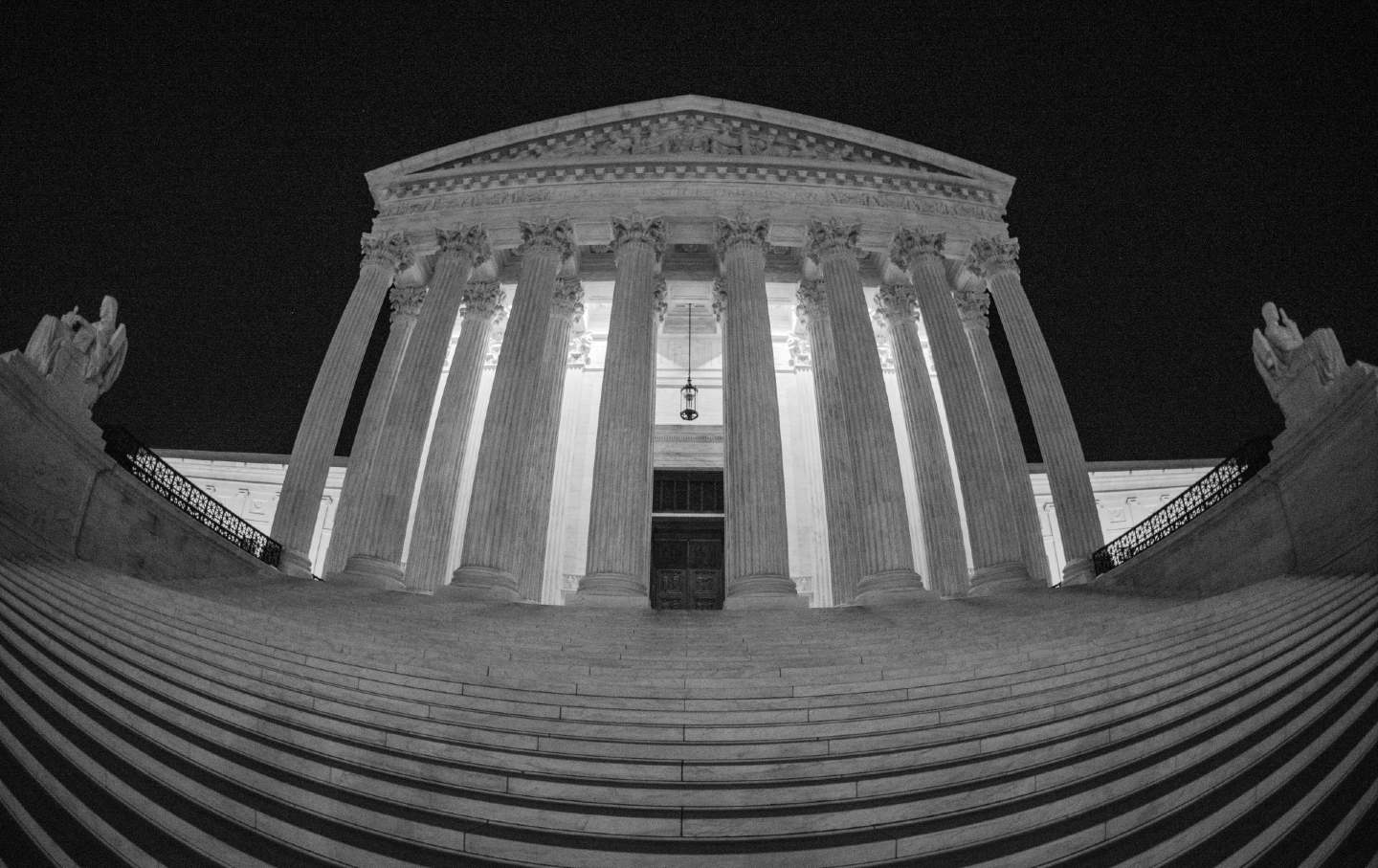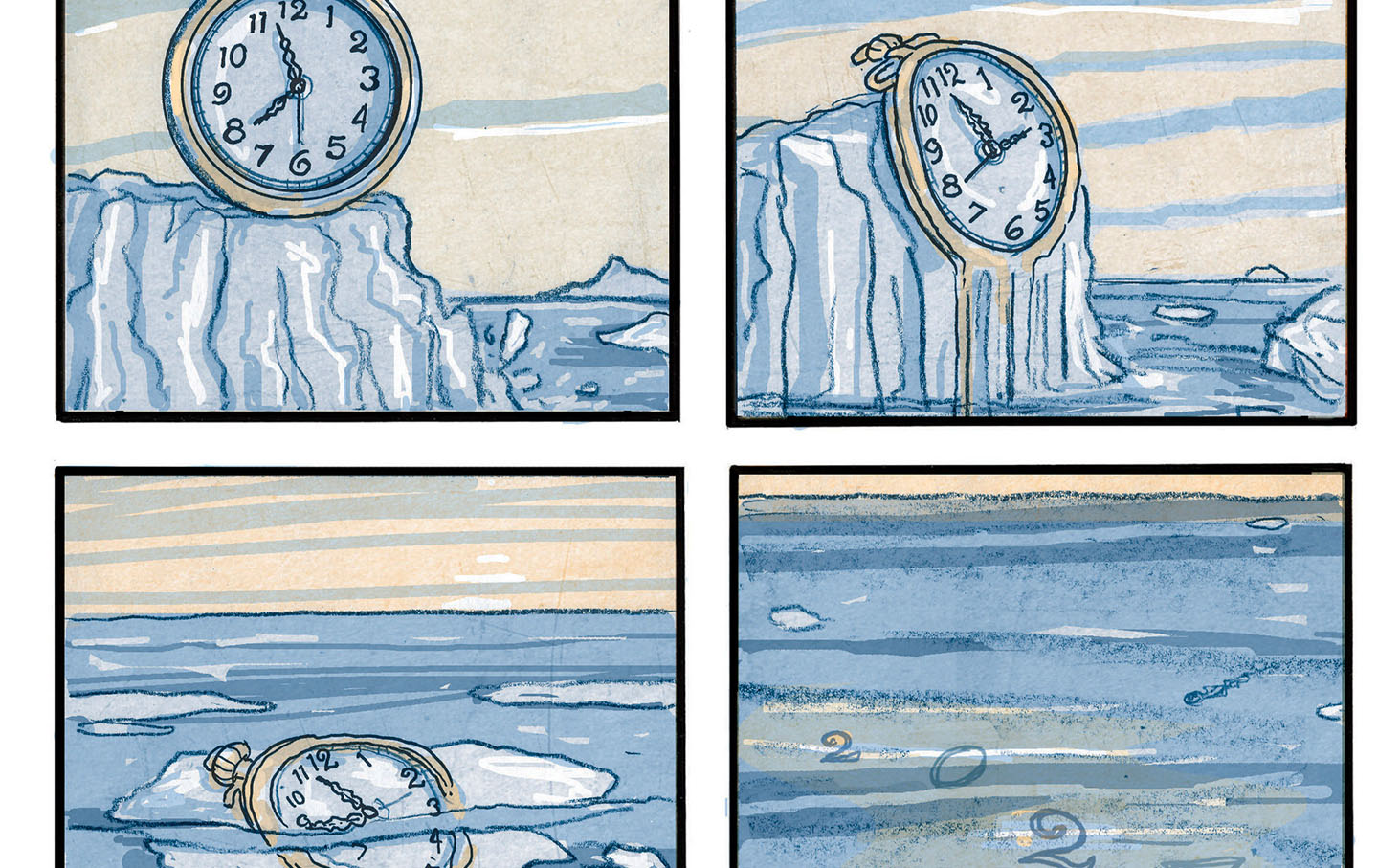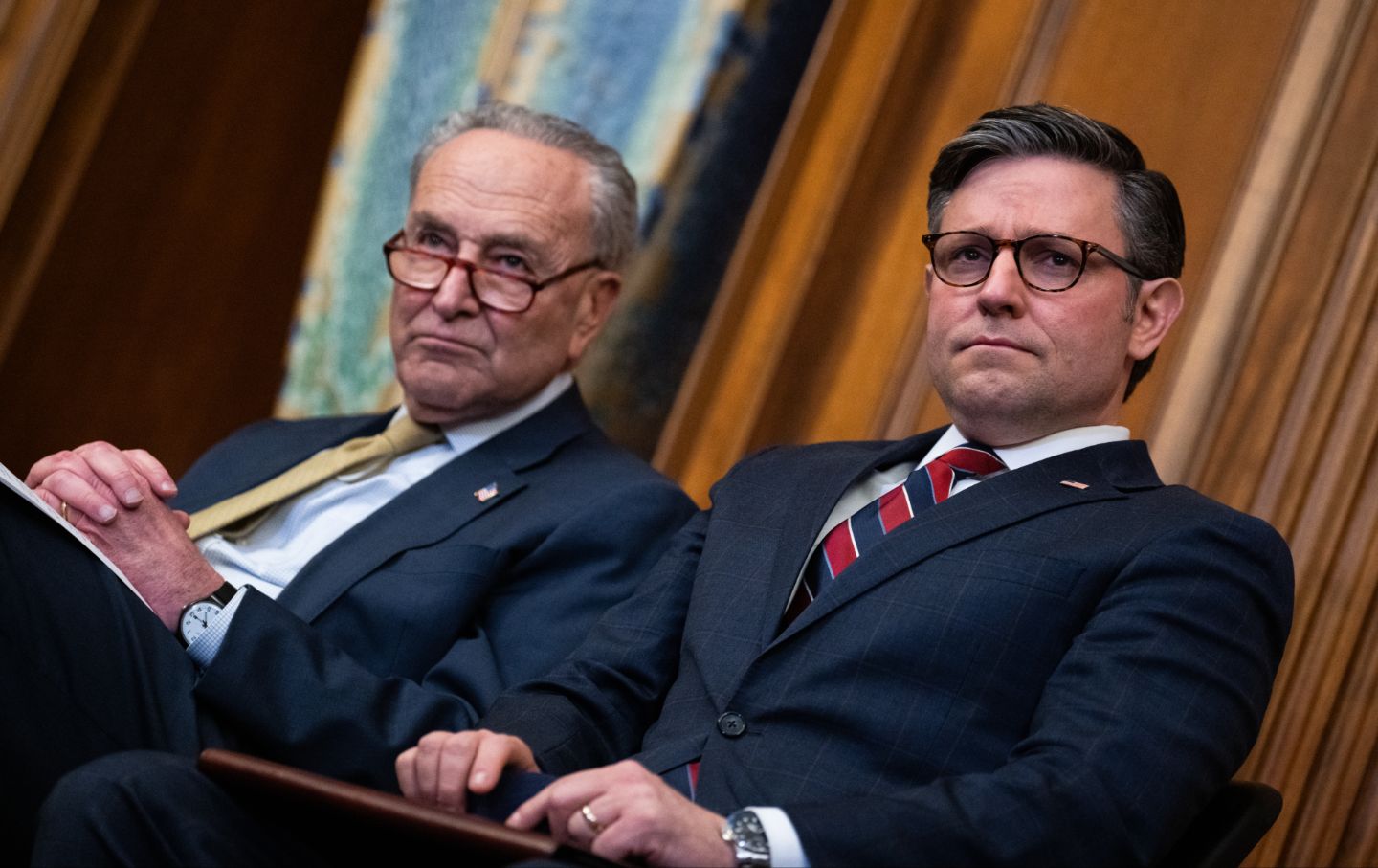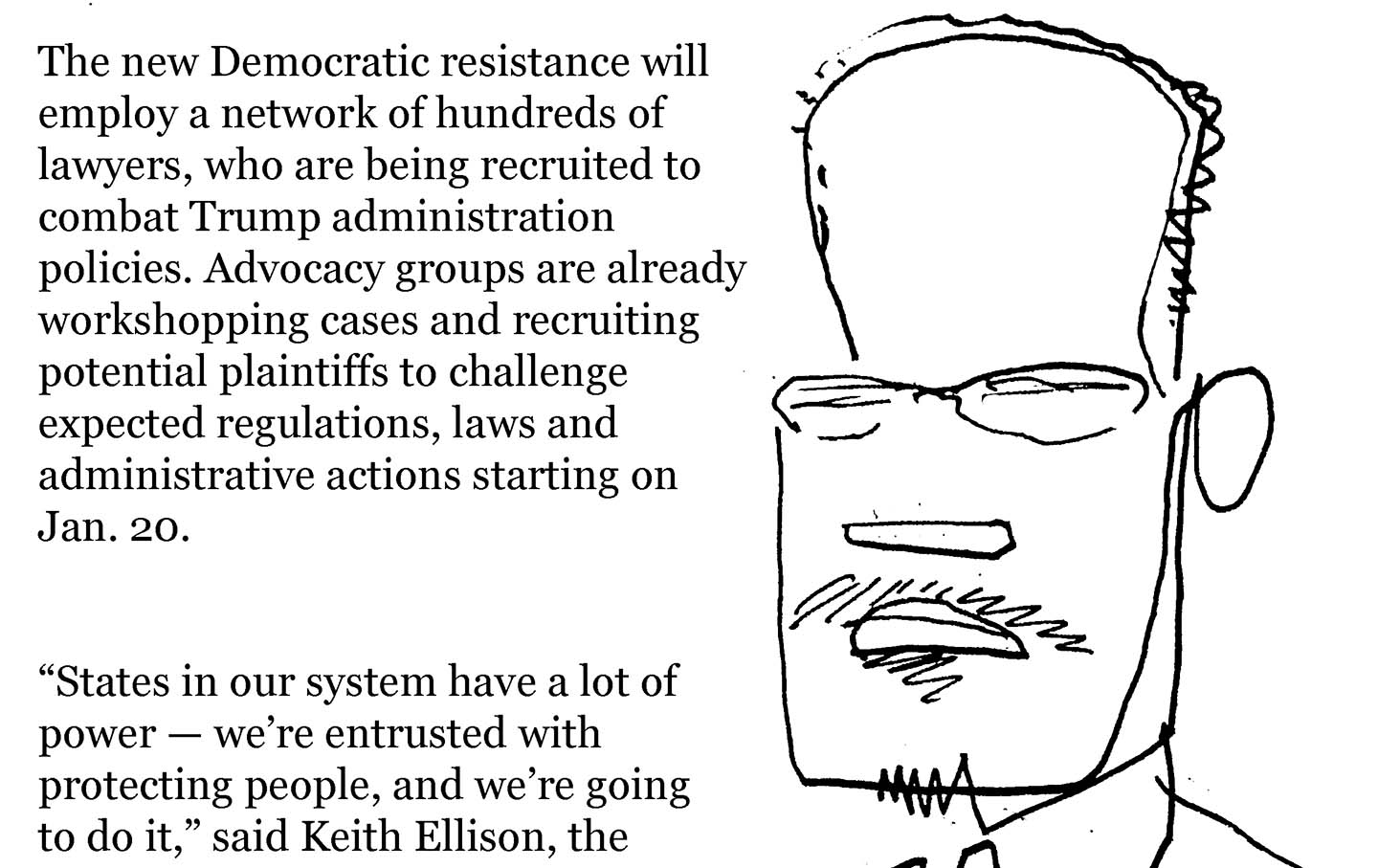What Was That Bizarro Louisiana Voting Rights Decision All About?
In a topsy-turvy ruling, the conservatives on the Supreme Court ordered Louisiana to use a VRA-compliant congressional map while the liberals dissented.

Earlier this week, the Supreme Court issued a stay that should resolve the latest lawsuits over Louisiana’s congressional redistricting plan, at least for a time. The court’s ruling locks in a map that produces two majority-Black congressional districts for the upcoming election, up from the one that existed under the map used in 2022. That makes the court’s decision a “win” for Black voters in Louisiana—as well, most likely, for Democrats trying to claw their way back to a majority in the House of Representatives.
Given that outcome, it will likely surprise people that the court’s ruling was 6-3, with the six conservative justices handing the additional district to Democrats, while the three liberal justices, lead by Ketanji Brown Jackson (who happens to be Black) dissented. But, as Jackson expertly explained in her dissent, there’s a bigger set of issues underlying the case than would first appear.
To understand the dissent, you have to understand the context for this litigation, which has been incredibly messy. After the 2020 Census, the Republican-controlled Louisiana legislature produced a map for its six congressional districts that resulted in only one majority-Black district. That map was clearly the result of an illegal racist gerrymander, because more than 31 percent of Louisiana’s residents are Black. The legislature had to go out of its way to give a state that’s almost a third Black only a single Black district.
The map was challenged in early 2022 by voting rights groups, which said that it violated the Voting Rights Act. In June of that year, District Court Judge Shelly Dick (a Barack Obama appointee) ruled that Louisiana’s map was unconstitutional and ordered a new version to be drawn with two majority-Black districts. But the Supreme Court put Judge Dick’s ruling on hold while it considered a similar VRA case in Alabama. That allowed Louisiana to hold a congressional election with a map that a district court had already ruled was unconstitutionally racist.
In 2023, the Supreme Court decided to uphold the VRA in the Alabama case (Allen v. Milligan, which I wrote about here) and, shortly after that ruling, the court allowed Dick’s ruling to take effect. The state quickly appealed the ruling, however. The US Court of Appeals for the Fifth Circuit upheld Dick’s ruling (citing Milligan), but there was a catch: The Fifth Circuit ordered the Louisiana legislature—not the court—to produce the new map.
In 2024, the state legislature dutifully produced a map with two majority-Black districts, but the new map is what the political scientists would call “ugly.” There’s a district (Louisiana CD-6) that nearly bisects the state, east-to-west, in an unnatural alignment that looks like it was picked out of a “ridiculous gerrymanders” coffee-table book. As Ian Millhisier explains, the likely reason the legislature drew the map this way was to protect two powerful Congressmen—Steve Scalise and Speaker of the House Mike Johnson. The Republican who gets screwed under this map, and now represents the ugly CD-6, is Garret Graves, a person who is thought to be a “rival” of Louisiana’s Republican Governor Jeff Landry.
In response to this new map, a group of 12 white voters—who identified themselves as “non–African American voters”—filed suit, claiming the new map violated the Equal Protection Clause of the Constitution. The thrust of this group’s argument was that CD-6 violated principles of map-drawing by splitting apart natural communities. It’s not unusual for gerrymandering cases to be brought under the Equal Protection Clause, but it is unusual for aggrieved white people to claim they’re being denied equal protection because they’re not being overrepresented by a redistricting map. I guess if you think Black people should still count as only three-fifths of a voter, the white equal protection argument makes sense.
For procedural reasons I cannot pretend to understand, this challenge wasn’t heard by Judge Dick in the middle district of Louisiana but by a three-judge district court panel from the western district of the state. On April 30, that panel (which included two judges appointed by Donald Trump) found that the new maps were unconstitutional and ruled in favor of the pissed-off white people. The court ordered the Louisiana legislature to draw a third congressional map.
The upshot of all this complicated back-and-forth was distressingly simple: As of May 1, Louisiana had no constitutionally valid congressional district map for the federal election in November.
That’s why the Supreme Court weighed in this week. The high court stayed the Trump court’s ruling invalidating the map with the two majority-Black districts, meaning that this map is once again back on the books and will be used this November. In the process, the court’s ruling locks in two Black districts and all but guarantees a smooth reelection ride for Scalise and Johnson. It also means that Louisiana, for now, does not have to go back to the literal drawing board and come up with a different map.
Black voters in Louisiana fought very hard for this map, and getting the conservative justices to agree to it, if only for the next election, is a big victory. In dissent, however, Jackson (joined by justices Sonia Sotomayor and Elena Kagan) revealed that there’s more to the conservatives’ decision than meets the eye.
At issue before the Supreme Court was not the white challenge to the map—and, more specifically, the question of whether it violates the Equal Protection Clause—but the timing of that challenge: Louisiana state officials argued that it is too late for them to draw a third congressional map; the conservatives on the Supreme Court agreed. Jackson, however, did not. She argued that there is still enough time for Louisiana to come up with a constitutional map before the election.
The legal principle under contention here is something called the “Purcell Principle.” The term comes from a 2006 Supreme Court case, Purcell v. Gonzalez, in which the justices unanimously agreed that courts should not alter a state’s election rules or procedures “in the period close to the election.” But the Supreme Court has never defined when “close” to the election actually is.
The actual Purcell case, which involved a challenge to Arizona’s voter ID requirements, was brought in May of 2006, before the November 2006 midterm elections. A district court rejected the challenge on September 11, 2006, but the Ninth Circuit Court of Appeals overruled the district court and altered the voter ID requirements on October 12, 2006. The Supreme Court invented the Purcell Principle—and overruled the Ninth Circuit—in a decision it issued on October 20, just over two weeks before the election.
I think most people will agree that a couple of weeks before an election is “in the period close to the election.” But Republicans on the Supreme Court have been trying to extend that period to cover nearly the entire election year. When you consider that Congress is elected every two years, a Purcell Principle that covers the year in which an election is held leaves little time to challenge the constitutionality of election rules.
This is the heart of Jackson’s dissent. She writes: “In my view, Purcell has no role to play here. There is little risk of voter confusion from a new map being imposed this far out from the November election.”
Popular
“swipe left below to view more authors”Swipe →Remember, litigation against Louisiana’s map started in 2022, before that year’s midterms. The legislature released this new map only in 2024. If it is unconstitutional, when the hell were the group of CD-6 voters supposed to challenge it? In 2025, after another election? Jackson is right to warn about this extension of the Purcell Principle to cover essentially any election-year challenges to rules that will affect that election cycle. Most of the time, it’s not going to be a clutch of aggrieved white voters objecting to their district being carved up under a Republican plan to protect their speaker of the House; it’s going to be vulnerable people forced to contend with whatever new voter-suppression rule Republican politicians invent to disenfranchise them. If they can’t challenge those rules in an election year, their political power can be taken away through the bad-faith application of the Purcell Principle.
All that said, if Jackson had won this argument, the very likely outcome of this particular case would have been that Louisiana would have had to draft a third congressional map, and the state might have tried to go back to a single majority-Black district, like the white plaintiffs wanted. Then the litigation wheel would have needed to start again. Eventually, the wrangling really might have come up against the “too-close-to-the-election” threshold, potentially locking in a racially unconstitutional map for yet another election cycle.
Of course, Jackson is smarter than I am, and so she anticipates (and dismisses) my concerns in a footnote. She writes: “The District Court has not yet selected a remedial map, and, were it not for this Court’s intervention, it may have selected a map that complies with both [the Voting Rights Act] and the Equal Protection Clause. I would have waited until after the remedial process concluded…” What she’s saying is that without Supreme Court intervention, Louisiana might have drawn a third, constitutional map that didn’t look like a clown’s balloon animal, and if it didn’t there would still be time for courts to fix it.
I’m sure there would have been time, objectively speaking, but I’m also sure that her Republican colleagues would have ruled that time had run out. Since Jackson knows that just as well as I do, I interpret her footnote as an admission that she is willing to sacrifice the short-term gain of the extra Black congressional district, if it came to that, for the long term goal of limiting the Purcell Principle.
Jackson and the liberals are doing something here that would be lauded by the media if they were Republican: going against their party’s immediate electoral interests because those interests produce bad law. If Amy Coney Barrett did this, The New York Times and The Washington Post would be writing love sonnets about her.
We’re already at the point where liberals should be reading every word Jackson writes. She’s always looking at the fights ahead of us, because she understands what Republicans are going to do next. Jackson simply isn’t willing to sacrifice a long-term legal position for a near-term political gain. She’s playing a very long game here: She must be confident that the American republic will survive long enough to see it pay off.
I hope she’s right. But in the meantime, I hope Louisiana sends an extra Democrat to Congress.
We cannot back down
We now confront a second Trump presidency.
There’s not a moment to lose. We must harness our fears, our grief, and yes, our anger, to resist the dangerous policies Donald Trump will unleash on our country. We rededicate ourselves to our role as journalists and writers of principle and conscience.
Today, we also steel ourselves for the fight ahead. It will demand a fearless spirit, an informed mind, wise analysis, and humane resistance. We face the enactment of Project 2025, a far-right supreme court, political authoritarianism, increasing inequality and record homelessness, a looming climate crisis, and conflicts abroad. The Nation will expose and propose, nurture investigative reporting, and stand together as a community to keep hope and possibility alive. The Nation’s work will continue—as it has in good and not-so-good times—to develop alternative ideas and visions, to deepen our mission of truth-telling and deep reporting, and to further solidarity in a nation divided.
Armed with a remarkable 160 years of bold, independent journalism, our mandate today remains the same as when abolitionists first founded The Nation—to uphold the principles of democracy and freedom, serve as a beacon through the darkest days of resistance, and to envision and struggle for a brighter future.
The day is dark, the forces arrayed are tenacious, but as the late Nation editorial board member Toni Morrison wrote “No! This is precisely the time when artists go to work. There is no time for despair, no place for self-pity, no need for silence, no room for fear. We speak, we write, we do language. That is how civilizations heal.”
I urge you to stand with The Nation and donate today.
Onwards,
Katrina vanden Heuvel
Editorial Director and Publisher, The Nation
More from The Nation

Sundays With Noel Sundays With Noel
Noel Parmentel was, according to his former lover and mentee, Joan Didion, the ‘outsider who lived by his ability to manipulate the inside.’

Acting on Climate Change? Acting on Climate Change?
The opportunity is melting away.

Democrats Must Do Everything They Can to Block the Dangerous Nonprofit Bill Democrats Must Do Everything They Can to Block the Dangerous Nonprofit Bill
The House passed a bill aimed at giving the government sweeping powers to crush nonprofits and attack supporters of Palestine. Democrats need to stand firmly in its way.

With Trump in the White House, Can Mexico Avoid Making the Drug War even Bloodier? With Trump in the White House, Can Mexico Avoid Making the Drug War even Bloodier?
Mexico’s new president, Claudia Sheinbaum, has a plan to combat drug trafficking, but she has a problem: Donald Trump.

Biden’s Mindless Escalation Is a Final Betrayal of Ukraine Biden’s Mindless Escalation Is a Final Betrayal of Ukraine
Instead of preparing for inevitable negotiations, the outgoing president adds fuel to the fire.



